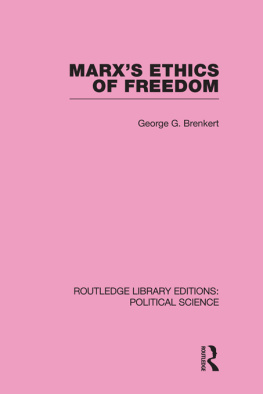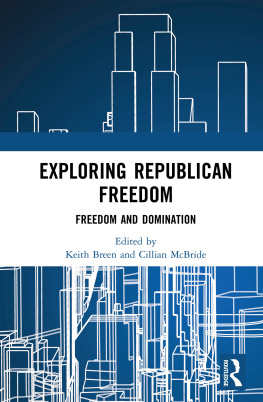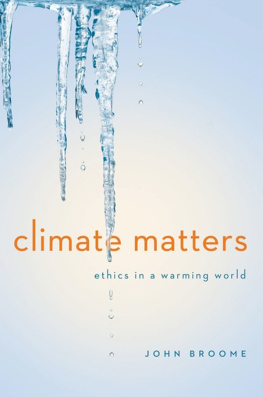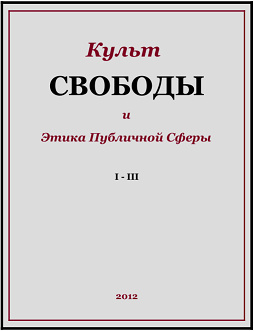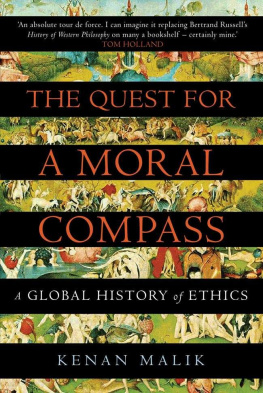Philip Pettit - Just Freedom: A Moral Compass for a Complex World (Norton Global Ethics)
Here you can read online Philip Pettit - Just Freedom: A Moral Compass for a Complex World (Norton Global Ethics) full text of the book (entire story) in english for free. Download pdf and epub, get meaning, cover and reviews about this ebook. year: 2014, publisher: W. W. Norton & Company, genre: Politics. Description of the work, (preface) as well as reviews are available. Best literature library LitArk.com created for fans of good reading and offers a wide selection of genres:
Romance novel
Science fiction
Adventure
Detective
Science
History
Home and family
Prose
Art
Politics
Computer
Non-fiction
Religion
Business
Children
Humor
Choose a favorite category and find really read worthwhile books. Enjoy immersion in the world of imagination, feel the emotions of the characters or learn something new for yourself, make an fascinating discovery.

- Book:Just Freedom: A Moral Compass for a Complex World (Norton Global Ethics)
- Author:
- Publisher:W. W. Norton & Company
- Genre:
- Year:2014
- Rating:4 / 5
- Favourites:Add to favourites
- Your mark:
- 80
- 1
- 2
- 3
- 4
- 5
Just Freedom: A Moral Compass for a Complex World (Norton Global Ethics): summary, description and annotation
We offer to read an annotation, description, summary or preface (depends on what the author of the book "Just Freedom: A Moral Compass for a Complex World (Norton Global Ethics)" wrote himself). If you haven't found the necessary information about the book — write in the comments, we will try to find it.
Just Freedom: A Moral Compass for a Complex World (Norton Global Ethics) — read online for free the complete book (whole text) full work
Below is the text of the book, divided by pages. System saving the place of the last page read, allows you to conveniently read the book "Just Freedom: A Moral Compass for a Complex World (Norton Global Ethics)" online for free, without having to search again every time where you left off. Put a bookmark, and you can go to the page where you finished reading at any time.
Font size:
Interval:
Bookmark:
THE NORTON GLOBAL ETHICS SERIES
General Editor: Kwame Anthony Appiah
PUBLISHED:
Climate Matters: Ethics in a Warming World by John Broome
Universal Rights Down to Earth by Richard Ford
Just Business: Multinational Corporations and Human Rights by John Ruggie
Thinking in an Emergency by Elaine Scarry
Can Intervention Work? by Rory Stewart and Gerald Knaus
The Human Right to Health by Jonathan Wolff
FORTHCOMING AUTHORS:
Martha Minow
Sheila Jasanoff
JUST FREEDOM
A Moral Compass
for a Complex World
Philip Pettit

For my Ballygar, Canberra, and Vancouver families
CONTENTS
PART 1
The Idea of Freedom
PART 2
The Institutions of Freedom
I n most societies today, on most issues of public concern, we can learn about what is happening from a variety of sources; we can more or less readily inform ourselves about what might have been done and is not done, what is done and might not have been done. Equally, in most contemporary societies we have little difficulty in communicating with one another about what we think is going wrong, using social media to relay complaints about how our public institutions and our public representatives are serving us. This ability to form and exchange judgments on public issues is the bright side of our political life and culture.
The dark side is that it has become harder and harder, in this tumult of data and opinion, to determine which of the complaints made about government are reasonable, which unreasonable. We may be able to tell where our national and international leaders propose to take us but the complexity of the issues and the commotion of politics make it hard to measure the merits of rival initiatives. However transparent the array of options in the public world, the pros and the cons remain obscure. We see the different directions in which our societies may sail but we lack a moral compass to determine which ways are best.
Should our state look after the needy, or leave charity in private hands? Should it set up a system of compulsory medical insurance, or should people be allowed to choose whether to insure themselves or not? Should there be restrictions on private financing of electoral campaigns, or would such a move violate the spirit of an open democracy? Should our central banks and our courts be left in the hands of unelected officials, or should those authorities, like our legislators, have to run the gauntlet of electoral competition? Should each country accept the authority of the United Nations and similar bodies in various domains, or would that be a betrayal of sovereignty on the part of a state? Should rich states be required to help the poor and oppressed, or would that coerce the taxpayers of those states into an involuntary form of charity?
Unless we are ostriches, questions like these are bound to confront us in our everyday lives. But how are we to make up our minds on any such issue, whether as ordinary citizens, public officials, or would-be activists? Once we have sorted out the facts of the case to our satisfaction, how are we to determine what is right and what is wrong? The ideal solution would be to find a compelling reference point for making those judgments, in particular one that came from beyond the adversarial scramble of day-to-day politics. Such a reference point would provide a moral compass to guide us in a principled way through the thicket of public issues. Combined with factual assumptions about the background to those issues, it would help us to see where we ought to take our stand.
To be plausible, any reference point would have to be an ecumenical valueor set of valuesthat people on all sides of politics could recognize as relevant, assuming that they are ready to treat others as equals with themselves. It would not have to be a value to which all are ready to give unique authority in their thinking about politics, but it should at least be a value that all can recognize as a plausible candidate for such a directive role. It should be a value whose sponsors, when they defend its claims, might reasonably expect to get a hearing in all quarters.
Given the variety in contemporary conceptions of the good life, it may seem that a moral compass of this ecumenical kind is a pipe dream. But despair would be premature. I make a case in this book for building a moral compass around the notion of freedom, an ecumenical value whose political relevance no one is likely to contest. Interpreted in the fashion associated with the age-old ideal of the republic, this simple value has the potential to give us a unifying and revealing perspective on the many issues raised by our complex contemporary world. Recast in its original republican mold, freedom can provide a compelling viewpoint from which to gauge issues of political right and wrong. It is sufficient in itself to ground a nuanced, persuasive philosophy of public life. So, at any rate, I hope to persuade you.
THE MEANING OF FREEDOM
In late 1879, the Royal Theater in Copenhagen staged the inaugural production of Henrik Ibsens play A Dolls House . The play took Denmark and Europe by storm and established Ibsens enduring reputation as one of the worlds great dramatists. Like any good piece of theater it raises many important questions, but I find it fascinating for the question it raises about the meaning of freedom in particular.
The main figures in Ibsens play are Torvald, a relatively young and successful banker, and his wife, Nora. Under nineteenth-century law Torvald has enormous power over how his wife can act, but he dotes on her and denies her nothingnothing, at least, within the accepted parameters of life as a bankers wife. True, he bans the macaroons for which she has a particular taste. But even that denial is not much of a restriction, since she can hide the macaroons in her skirts. When it comes to the ordinary doings of everyday life, then, Nora has carte blanche. She has all the latitude that a woman in late nineteenth-century Europe could have wished for.
Nora enjoys many benefits that anyone might envy. But does she enjoy freedom? In particular, does she enjoy freedom in her relationship with Torvald? His hands-off treatment means that he does not interfere with her, as political philosophers say. He does not put any prohibitions or penalties in the way of her choices, nor does he manipulate or deceive her in her exercise of those choices. But is this enough to allow us to think of Nora as a free agent? If freedom consists in noninterference, as many philosophers hold, we must say that it is. But I suspect that like me, you will balk at this judgment. You will think that Nora lives under Torvalds thumb. She is the doll in a dolls house, not a free woman.
If you agree about this, then you should be ready to endorse the conception of freedom driving this book. Your freedom as a person requires more than just being let alone, just benefiting from noninterference; it requires richer assets than any that Nora enjoys. To be a free person you must have the capacity to make certain central choiceschoices about what religion to practice, whether to speak your mind, who to associate with, and so onwithout having to seek the permission of another. You must be able to exercise such basic or fundamental liberties, as they are usually called, without having to answer to any master or dominus in your life.
Freedom in this sense requires the absence not just of interference, but of the subjection to another that was known at the time of the Roman republic as dominatio or domination (Lovett 2010, Appendix I). As we shall see more fully in Chapter 1, it was in that republic, and in the many later republics that modeled themselves on Rome, that the ideal of freedom as non-domination was most sharply articulated and most enthusiastically embraced. The freedom of the person was equated in those regimes with the freedom available to the fully incorporated, adequately empowered citizen.
Next pageFont size:
Interval:
Bookmark:
Similar books «Just Freedom: A Moral Compass for a Complex World (Norton Global Ethics)»
Look at similar books to Just Freedom: A Moral Compass for a Complex World (Norton Global Ethics). We have selected literature similar in name and meaning in the hope of providing readers with more options to find new, interesting, not yet read works.
Discussion, reviews of the book Just Freedom: A Moral Compass for a Complex World (Norton Global Ethics) and just readers' own opinions. Leave your comments, write what you think about the work, its meaning or the main characters. Specify what exactly you liked and what you didn't like, and why you think so.



